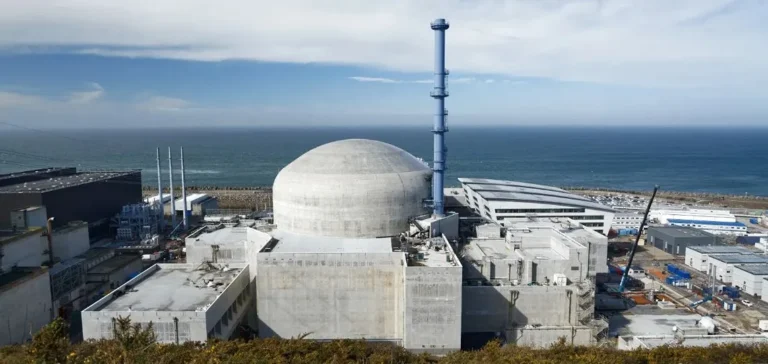The schedule for the new generation nuclear reactor at Flamanville is facing a new delay, with full power now expected only before the end of autumn. The French electricity provider has announced that the extension of a shutdown, for checks and maintenance on a primary circuit safety valve, requires a change in the plant’s power-up schedule.
Preventive maintenance on key equipment
The EPR (European Pressurised Reactor) had been shut down since June 19 for commissioning tests, a standard step during the launch of new nuclear installations. On July 2, the operating company decided to keep the reactor offline to intervene on several valves located at the top of the pressuriser. These pieces of equipment play a major role in keeping the primary circuit water at a pressure of 155 bars.
During these tests, it was found that two of the three valves in this circuit were not entirely compliant with the expected sealing requirements. As a result, preventive maintenance was scheduled on the third valve, making use of the teams already mobilised on site.
Impact on industrial schedule and project costs
Restarting the nuclear reactor is now set for October 1, thereby shifting the achievement of 100% power that was initially scheduled for the end of summer. According to a spokesperson for the electricity provider, each reactor start-up requires testing of 1,500 safety criteria, sometimes involving the readjustment of certain settings throughout the tests.
The Flamanville EPR reactor, which was connected to the electricity grid on December 21, 2024, is now twelve years behind the original schedule. The project has experienced numerous technical setbacks since construction began.
Budget overrun and financial challenges
The total project cost has greatly exceeded the initial estimate of €3.3bn ($3.57bn). According to the Cour des comptes, the total project cost is now estimated at €19.3bn ($20.92bn) at 2015 prices, and even €22.6bn ($24.50bn) at 2023 prices, including financing. The Flamanville 3 reactor remains the first of its kind to start in France in twenty-five years.
The large number of safety criteria checked and the technical complexity of the project demonstrate the vigilance required for new reactors of this type, as the nuclear sector continues to face significant scheduling and cost challenges.






















